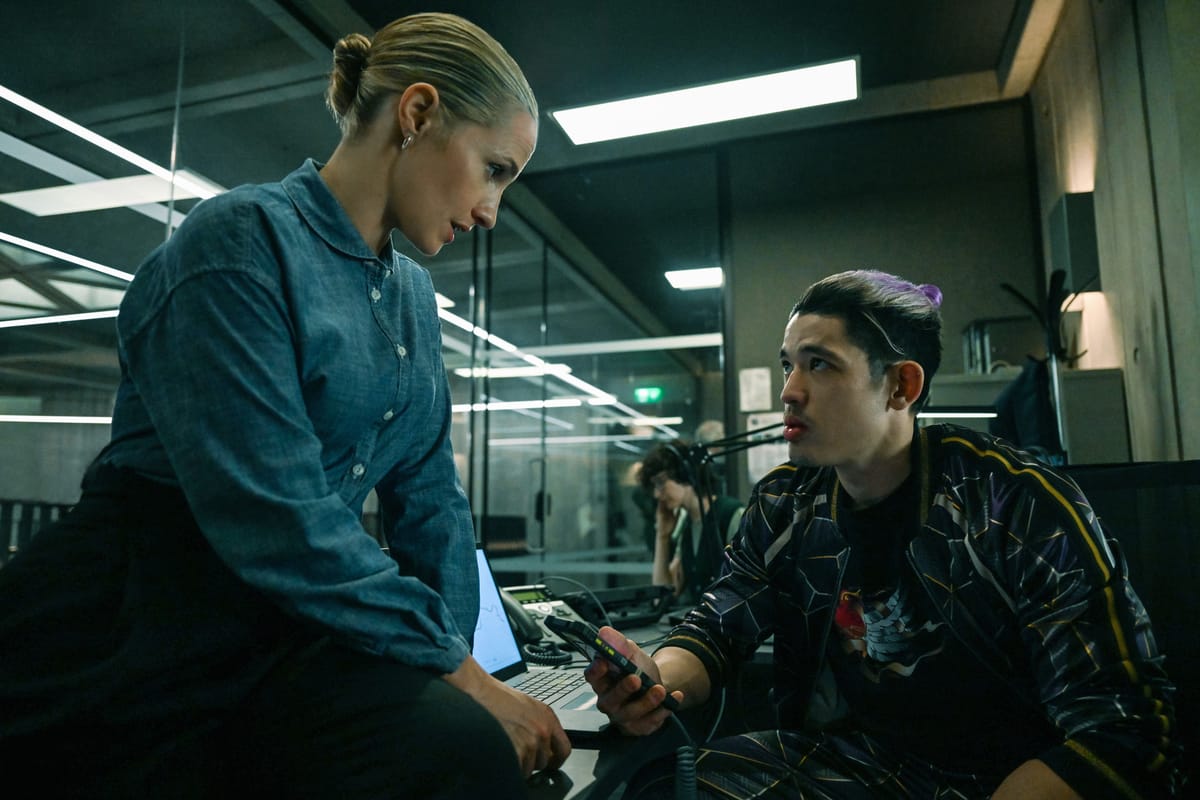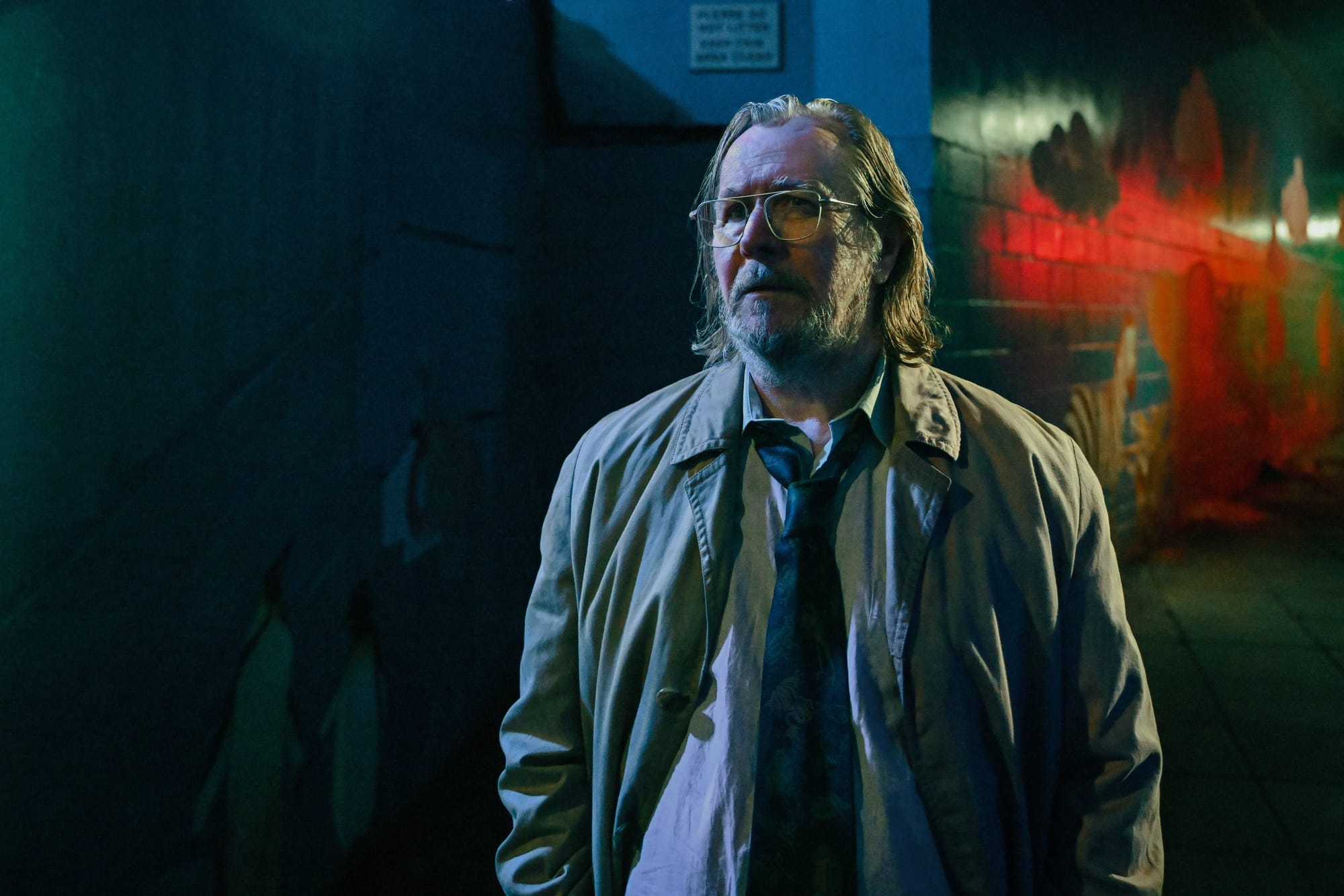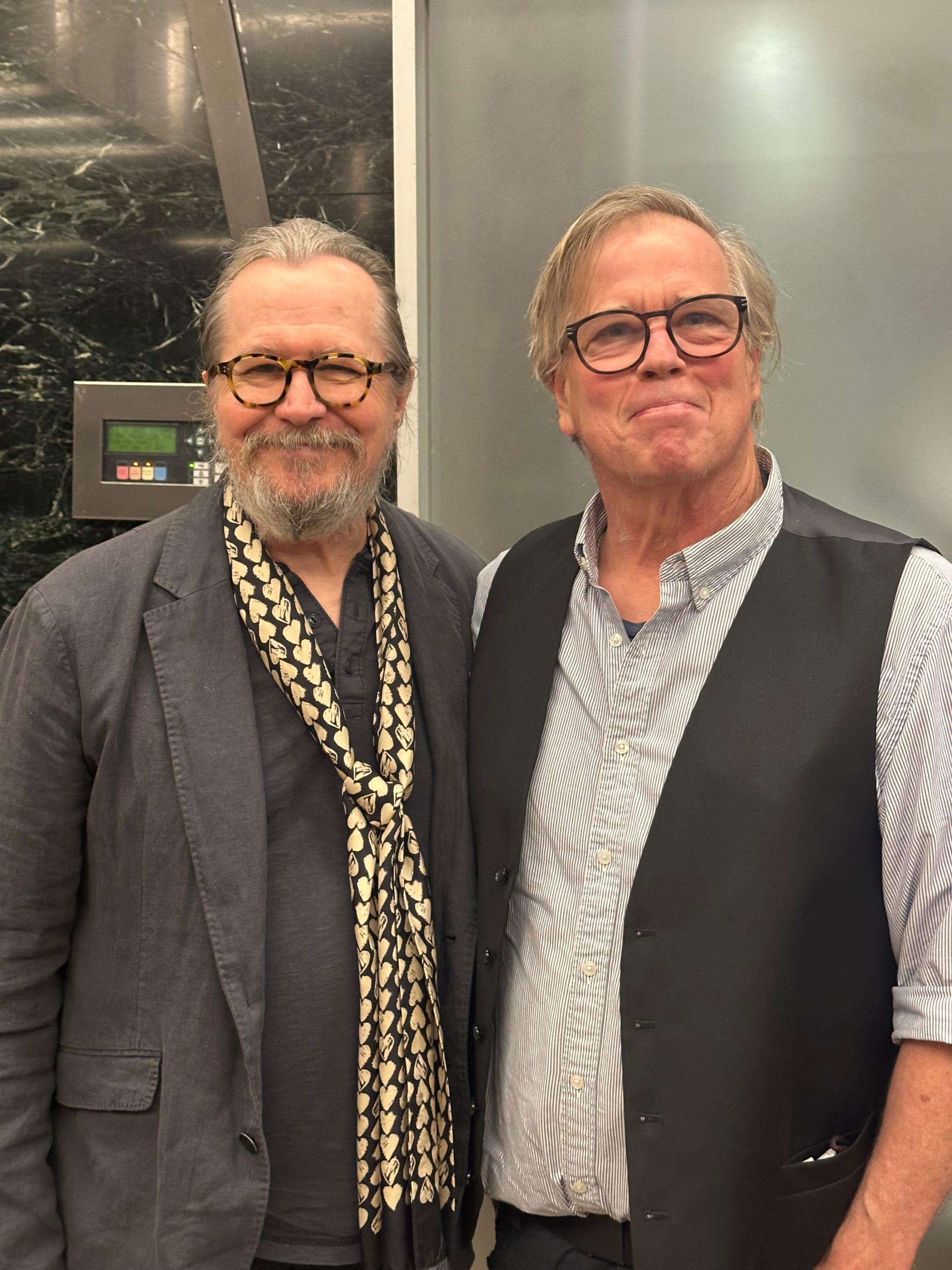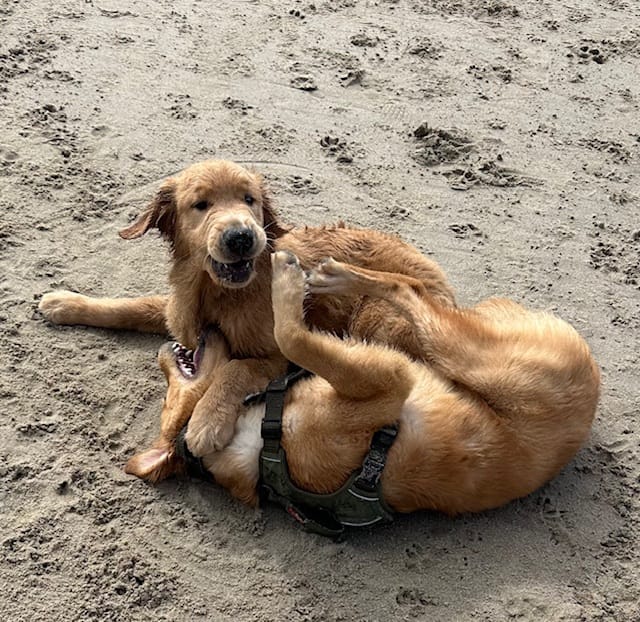Ride or Die with "Slow Horses" and a Twisty Season 5

If Gary Oldman ever held doubts about the legitimacy of small-screen work for an actor who won an Oscar playing Winston Churchill (“Darkest Hour,” 2017), said doubts have been thoroughly washed away by the popular and critical success of “Slow Horses,” which airs the fourth of six episodes tomorrow on AppleTV. (The run debuted internationally in April of 2022. We’ll speak here mostly of what’s been aired, with the lightest of spoilers for what’s still coming.) Fans may have thought the elevation of a secondary character might mean the horses are slowing, but the take here is the old nag is still must-see TV. Says Sir Gary (as he’s been known since his August knighting):

"I know that there's a stigma of, many, many years ago where people, film actors, would sort of look down on those that did television; there was the television actor, and there was the film actor. Now, famous directors are clamoring to get in on the game… they want to do a big show on TV now too. So it wasn't such a leap for me—it wasn't a coming-down.”
Indeed. As a performer who has managed to escape immodesty without then entrapping himself in false modesty, this well-loved escapee from working class roots can be allowed that humblest of brags. So let’s say what he might not—with his portrayal of Jackson Lamb, the serratedly sarcastic and unkempt boss of the tobacco-stained, sludge-colored Slough House oubliette, he’s farting on through one of the great multi-segmented acting performances of our times.
Asked about Lamb’s relation to a pair of filmed Oldman spy performances as John Le Carre’s somber overseas (MI 6) intelligence operative Smiley, he buys in: “I suppose in a way, I got the chance to play Smiley if everything had gone wrong, sort of like the other side of the coin.” There’s something else both portrayals share: “What I've most enjoyed is– because it's a great character.”
Oldman was speaking to a roomful of industry types at the Academy of Motion Picture Arts (see?) and Sciences Linwood-Dunn screening room, a pleasant cinema hall (within a somewhat soviet-realist office building) in Hollywood. It was two months ago, debuting the show’s first episode (“Bad Dates”) for its’ fifth season, to warm applause Oldman occupied a seat on stage alongside longtime manager and “Slow Horses” executive producer Doug Urbanski. The chat via a moderator would occupy a bit over twenty minutes. That brevity would suit the attendees, as just the right size packet of insights for a crowd who was also invited to mingle a bit with the actor (i.e.: stand in a slightly giddy line of folks wishing for selfies with the legend). Kind and loyal readers, you who have waited a few days longer than usual for this mid-week post as the new episodes arrived for us all—I was one such punter. Elsewhere on this page you will glimpse the not-so-smashing photographic result, with the nearly covert smile of Oldman’s tolerant near-amusement when I reminded him of shared history, as cited in a post last year: https://www.dogtown.press/brits-to-the-rescue-slow-horses-remounts-with-elan/
The show is billed aptly enough as a thriller; Season 5 kicks off with a quiet London square framing a placid early-morning moment that roars into shockingaction. In those opening moments we think we know what’s up as Roddy Ho, skateboards through, self-entranced. He’s played by Christopher Chung with a reliable obliviousness, and with Roddy’s familiar, serene if energetic ignorance of his own ridiculousness as he believes his new girl is anything but a honey trapper. We know that in addition to his mad skills turning over stones online throughout the cyberverse and his curiously Adonis-like physique, he has an oafishly mistaken sense of his attractiveness to women.
Why not then introduce him with a full-volume, prolonged needle drop of Robert Palmer’s brunt-rubber hit “Simply Irresistible” as it roars into his ears through a pair of about-to be-smashed headphones?
We will in due course see how Roddy’s cluelessness finds him inveigled into a clockwork plot involving Middle Eastern terrorists in the Big Smoke that is London. By the sort of story-plank happenstance we forgive going into each episode of “Horses,” Roddy survives the early action, much thanks to co-Slow Horse Shirley. (She’s everybody’s troubled little sister, and along with her Lamb-led cohort is a bit traumatized by last season’s events.) Since the season when the Slough’ers sweated through a long summer the weather isn’t a factor here, though aptly for London and this group, it’s rather cloudy out, heading for moody.
We are still recalling the death of Slow Horse Marcus, who went down fighting but leaves a gap of the sort this series bravely features. The opening sequence—which had already had the audience sitting up straight and a bit gob smacked in our seats, almost found its climax in a sudden demise for Roddy. But with the economy of plot mingled with character quirks as practiced by author and creator of this fictional crew, Mick Herron, there’s a saving move by fellow horse (per the jargon of the spook trade, the operatives are known in the trade as ‘Joes”), Aimee Ffion-Edwards' Shirley Dander.
Part of Shirley’s skill set is a paranoid streak, and she’s been so shattered by the demise of Marcus that a formerly abated substances issue has left her frustrated and hangry for action. She can’t quite figure out why a speeding white van very nearly took Roddy out in the opening minutes, but sure it was no accident.
Boss Lamb is skeptical—why hapless Roddy? It’ s characteristically self-unimpressed for Oldman to begin answering a query as to Lamb’s dyspeptic crankiness by sooner acknowledging the plot points and character touches that keeps it all revolving around his sardonic screen self: “I think that's his running condition, always a bit fed up. and then this story that Shirley has latched onto about [someone] trying to kill Roddy--which, on the one hand, seems completely ridiculous, and Lamb’s really not even paying attention– and then on the other hand, there might be something there. ''
By gradual degrees it becomes clear that the terrorists have a broader plan, one involving a London mayoral race between a popular, ingratiatingly moderate Muslim mayor Zafar Jaffrey, played by Nick Mohammed) and a blowhard Trump-style conservative mountebank. The burst of gunplay and Roddy’s near-wipe-out, Oldman said, “Sets it up quite nicely, because you've got this terrorist event that we're not as connected to, you’ve got these two competing politicians, you've got River (Jack Lowden’s youthful River Cartwright, who’s suffered a fraught season four with parental and grandparental issues). River is just sort of lost as he's ever been--with his grandfather and father.
For all Lamb’s rigorous anti-sentimentality, not to say sheer misanthropy, Oldman grants the man an edge of caring. “At the end of season four, I've reached out to River; know he's having a terrible time with the (dementia-plagued, in the hands of seasoned Jonathan Price) grandfather. So Lamb called him up, invited him for a drink, and said, “As long as you don't say a fucking word, and you buy your own drink.
“You know, that's `caring’ for Jackson, I mean, that's the warm hug in a bath, basically. So yes, it's a great character to come back to and revisit, and I have enormous fun standing on the set in the scruffy clothes and greasy hair, and occasionally, you know, at the right moment, passing gas.”
Even more terrifying than the sheer effluvium that may issues from Lamb’s bowel region is something far grander. As part of a rather slapstick scheme Lamb is cooking to flip the tables on some “dogs” –the security personnel the MI5 superiors have deployed to hold them captive and out of the action--he warns he needs the loo: “If we don’t watch it, we’re gonna have this baby right here.”
“So,” adds Oldman, “it's a lot of fun to play. But the thing that's made it the most enjoyable and a highlight of my career, has been the experience of coming back again and again and working with the same people. The cast are amazing, not only super-talented but super nice. I adore them, they're fabulous people. And then you've the sort of guest stars, as it were. Hugo Weaving turns up, amazing--he's so sinister on screen, he’s the nicest man.”
As the chief bête noire of River’s deeply painful arc last season, Weaving played a jealous yet withholding dad equipped with lethal filigree. Lowden counters him with a hard-earned sangfroid of his own—“I feel like I’ve just had a Ted talk,” he tells him after the rogue dad shares some bits of tradecraft—but in season five he gives a performance that’s sufficiently introverted and damaged that it may be a challenge for Lowden to again notch the Supporting Actor Emmy nom he scored last year. (Ah but, in an early-season miscue-dogged romantic encounter too special to recount here, he exhibits a Roddy-like presumption that is such a good fumfering turn it may put him back in contention.)
Oldman smiled over reconnecting with Scott-Thomas (his co-star in “Darkest Hour”) as she plays a steely, though lightly dusted with vulnerability, office politicker. Her encounter with the delusional Roddy is an interrogation she plans to conduct as convincingly empathic, but such is his obtuseness that she let us, if not Roddy, just glimpse her peeved contempt.
“Then you have someone that you've never met, like James Callis,” continued Oldman with zeal, “And the first day we were found I was a fan.” As well he might—when the character bloomed in Season 4, the tic-y, self-important if inept career-minded senior director of the spying service emerged as Herron describes him in “London Rules,” the fifth Slow Horses book and template to the current season: “Claude Whelan’s First Desk often seemed like a balancing act and Lady Di [Taverner], one of the number of so-called equals all termed Second Desk, awaiting his fall not to be ready to catch him, but to be sure when he hit the ground he never got back on his feet.”
It would be unfair to leave out a kindred Roddy debrief staged by head Dog Emma Flyte, whom Lamb has depicted as the last hot (if martial) blonde you want to see at your door. As seen above, Ruth Bradley as Emma is so thoroughly aghast at Roddy’s notion that she is crushing on him—as all women surely must, that she wonderfully conveys almost exactly zero reaction. This is the sort of Slow Horses moment that should make us flip a hand up and declare “brilliant acting!” Maybe later, there will be gunplay and she’s around for that as well.
We cling to these characters who have been cut off from mainstream spook work and yet beat the pros at their own game, and we cling to them partly because they cling to each other (even through their pickleball-smash sneers and insults).
When he was awarded his knighthood, Oldman spoke to Deadline about the ethos of the show: “It’s taken off because the characters are “people that we can relate to,” he said, “We are so sort of contaminated with the idea of the spy world being casino and Aston-Martin’s, I think it connects with people because the people who are in it are ordinary people who do heroic things, without any gizmos.”
With five heading for a finish, season six largely in the can, and season 7 already signed up, Oldman showed a bit of caution in eschewing plot reveals: "It's not a locked thing in a vault somewhere. You can actually go read the books, stick close to them. Okay? You have to watch it, because by the time you get to episode three or four, the acceleration pedal gets pushed, and– you'll see.”



Comments ()